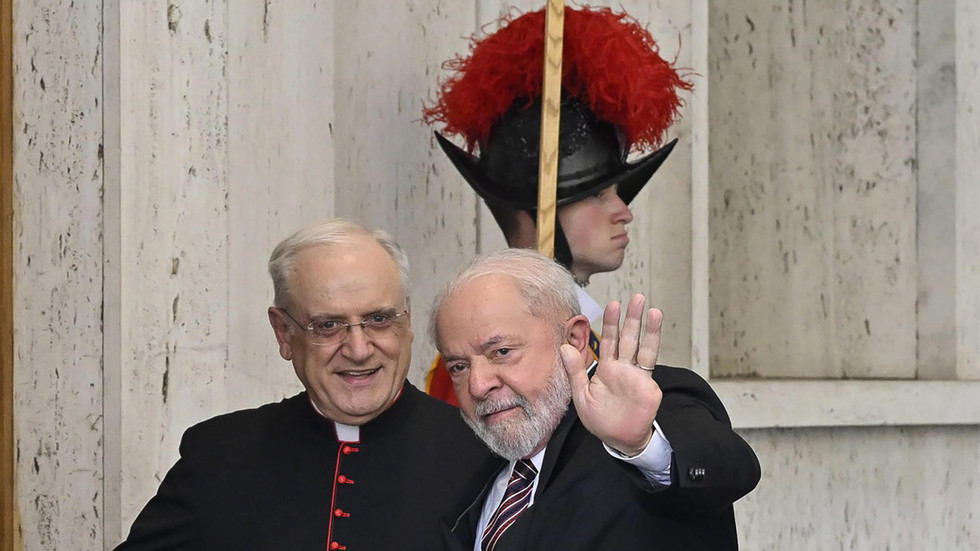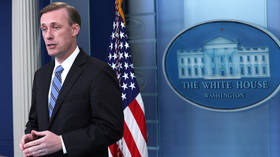
Neutral mediators can help Moscow and Kiev formulate how to reach a truce, the Brazilian president has said

FILE PHOTO: Brazilian President Luiz Inacio Lula da Silva (R) arrives for a private audience with Pope Francis. © Alessandro Di Meo, Pool via AP
Russia and Ukraine both need to compromise to achieve peace, Brazilian President Luiz Inacio Lula da Silva said on Thursday, as he reiterated his government’s position on the armed conflict. Mediation would be best coming from parties not involved in the fighting, he explained.
“The two parties both need to get something. Only the Russians and the Ukrainians know what they need to reach peace,” the Brazilian leader said during a press conference in Rome.
He noted that the EU’s capacity for mediation in the conflict is limited because it is involved in it, as is the US. He named India, Mexico and African nations as potential neutral peace brokers, whom Brazil seeks to bring together.
“I agree with Pope Francis. We need to get people to talk peace, to bring the parties to the negotiating table. It is necessary to stop the shooting and try to find a peaceful solution,” he added. “It’s not fair [to the needy people] to spend billions of dollars and euros on an unnecessary war, when we could be living in peace.”

Read more
The Brazilian president arrived in Rome on Wednesday to meet Italian Prime Minister Giorgia Meloni and other senior government officials as well as the Pope.
Francis had a 45-minute private conversation with Lula and gave his long-time acquaintance a bronze bas-relief with the inscription ‘Peace is a fragile flower,’ according to Italian media.
Moscow has blamed Kiev for a lack of peace negotiations, pointing out that last year Ukrainian President Vladimir Zelensky signed a decree that prohibits talks for as long as his Russian counterpart, Vladimir Putin, remains in office.
The Ukrainian government maintains that it will only negotiate after ousting Russian forces from all territories to which Kiev lays claim. Zelensky has insisted on his peace plan, which demands a Russian withdrawal, war reparations, and a tribunal for alleged war criminals. Moscow has rejected the proposal, calling it detached from reality.




